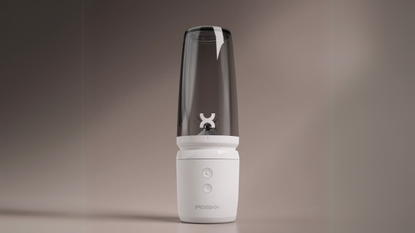Kitchen
The latest Kitchen breaking news, comment, reviews and features from the experts at T3
Explore Kitchen
-
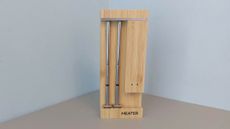
I tested Meater’s Pro Duo meat thermometer, and it turns out that two is better than one
The new Meater Pro Duo is my latest cooking essential
By Bethan Girdler-Maslen Published
-

Nespresso adds a pretty pop of pink to its Vertuo line – and it's perfect for spring
Get ready to add a splash of colour to your coffee routine
By Lizzie Wilmot Published
-

Ninja, Tower, Tefal and more – 7 dual air fryer deals from Amazon’s Spring Deal Days
Get up to 50% off air fryers from Ninja, Tower, Tefal and more at Amazon
By Bethan Girdler-Maslen Published
-

Watch out Ninja – Cuisinart's new air fryer delivers family-size feasts at half the price
Ninja might be top dog, but Cuisinart’s latest model is a serious contender
By Lizzie Wilmot Published
-

Don't panic, but this is the cheapest I've ever seen the Ninja Double Stack Air Fryer
Grab it whilst stocks last
By Lizzie Wilmot Published
-

Best bean-to-cup coffee machine 2025: top picks for coffee lovers
Find the best bean-to-cup coffee machines that incorporate a grinder, espresso maker and milk frother in one handy box
By Bethan Girdler-Maslen Last updated
-

Panasonic's new microwave is the ultimate home-cooking companion – I'm completely obsessed
It really does do it all
By Lizzie Wilmot Published
-
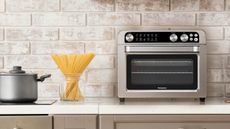
Is the toaster oven making a comeback? This Panasonic air fryer seems to think so…
Panasonic celebrates its popular toaster oven with new and improved design
By Bethan Girdler-Maslen Published
-
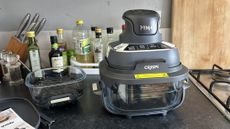
I couldn’t wait to review the Ninja Crispi portable air fryer and it doesn’t disappoint
Four different cooking modes and the bonus of glass dishes makes the portable Ninja Crisp a real hit
By Rob Clymo Published
-
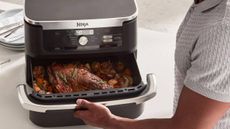
There's a hidden built-in gadget in your Ninja air fryer – here's how to find it
Did you know about this?
By Lizzie Wilmot Published
-

Nespresso's first-ever flavoured decaf capsule is here – I can't wait to try it
The perfect cup without the jitters? Yes please!
By Lizzie Wilmot Published
-
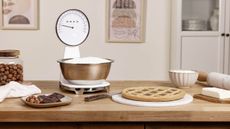
Smeg debuts the fanciest kitchen scales I’ve ever seen
Smeg caters to home bakers with its new retro-inspired kitchen scales
By Bethan Girdler-Maslen Published
-
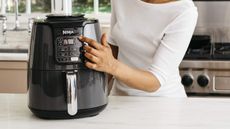
Expert reveals how often you should really clean your air fryer – and what happens in you don't
Have you been neglecting yours?
By Lizzie Wilmot Published
-

Smeg BCC12 Bean-to-Cup Coffee Machine review: a semi-automatic delight
The Smeg BCC12 looks the part, but how does it perform?
By Bethan Girdler-Maslen Published
-

ProCook Barista Elite review: a premium bean-to-cup coffee machine that gives Sage a run for its money
....but is it any better?
By Lizzie Wilmot Published
-

Panasonic's new 4-in-1 microwave is the smartest kitchen appliance I've seen in a while
Don't even get me started on the app
By Lizzie Wilmot Published
-
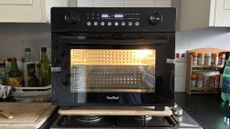
VonShef 28L Air Fryer Oven review: supersized design limits its appeal
This big and bulky appliance is versatile, but the overall size makes it a little bit of a handful
By Rob Clymo Published
-

Le Creuset launches the On The Go collection, and it's the fanciest tupperware I’ve ever seen
Le Creuset takes on YETI with its On The Go line-up
By Bethan Girdler-Maslen Published
-
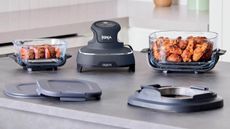
The Ninja Crispi is finally available in the UK – it’s the perfect office companion
You can finally buy Ninja’s most portable air fryer
By Bethan Girdler-Maslen Published
-

De'Longhi expands best-selling La Specialista range with new bean-to-cup coffee machine
Say hello to the La Specialista Touch...
By Lizzie Wilmot Published
-
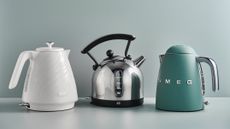
Best kettle 2025: the highest-ranking multi-temp and standard models
The ultimate vessel for a perfect cuppa
By Lizzie Wilmot Last updated
-

10 must-have kitchen appliances you need for your home – all available from AO
Sponsored by AO
Is your kitchen ready for an upgrade?
By T3.com Published
-
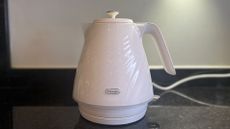
De'Longhi Ballerina Seta kettle review: an absolute beauty but overpriced
Is it worth it, though?
By Lizzie Wilmot Published
-

Hunkering down to watch the rugby? Beerwulf's keg machine starter pack has everything you need
Sponsored by Beerwulf
It's also currently £20 off!
By T3.com Published
-

Kenwood redesigns iconic stand mixer in three new stylish colourways
You won't be able to stop baking with one of these!
By Lizzie Wilmot Published
-
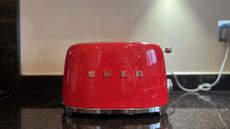
Smeg TSF01 toaster review: a little luxury that makes everyday toasting that much better
First it was the kettle...now it's toaster time
By Lizzie Wilmot Published
-
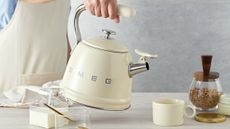
Smeg revives retro charm with brand new kettle – and it's a lot bigger than before
You'll be feeling nostalgic in no time
By Lizzie Wilmot Published
-
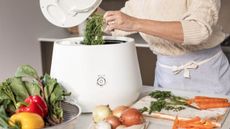
This food recycler turns kitchen waste into nutrient-rich compost – but it’ll cost you
The Lomi food composter might be the answer to your food waste concerns
By Bethan Girdler-Maslen Published
-

This smart multi-cooker has an integrated 10-inch touchscreen display – genius innovation or overkill?
The Thermomix TM7 is here...
By Lizzie Wilmot Published
